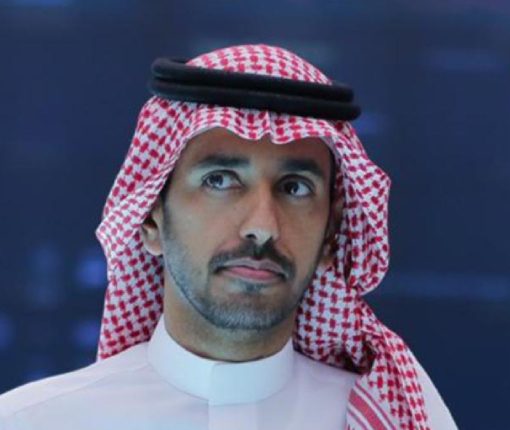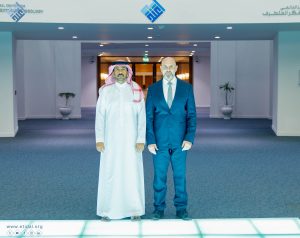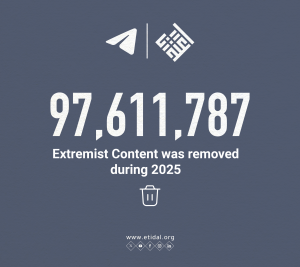In the face of existing challenges in the Middle East and globally, and given the requirements for advancing security, development, stability, and prosperity, it seems appropriate to address a phenomenon that is on the rise: the concept of extremism. Despite the efforts being made in this regard, defining extremism remains the most commonly discussed aspect of this issue. To address this matter, we face an old and well-known paradox: we only learn what we already know to some extent, as ignorance of a subject closes the door to asking questions about it. Establishing a rigid and fixed definition for topics that are inherently dynamic, fluid, and multifaceted traps us in this paradox, where definitions become a closed fence, limiting us to outcomes that merely reflect what was presupposed in the premises. Thus, while definitions provide a sense of clarity and comfort, they often obscure our understanding of the complex realities behind certain phenomena.
The aforementioned approach is crucial in asserting that the meanings of topics are not grasped through reductive definitions, but rather through tracing their complex interconnections, which are the result of continuous accumulations and constantly evolving rules. Those who observe the dangerous phenomenon of extremism find themselves compelled to abandon prevailing definitions in order to adopt a more cumulative analytical approach, viewing extremism as a complex spectrum intertwined with diverse domains, spanning legal, cultural, social, security, and political dimensions, and beyond. Consequently, reducing this complexity to a single definition would be overly simplistic. The tendency to equate extremism solely with terrorist activities often leads to oversimplified definitions, stemming from the belief that extremism must always manifest as terrorism, making it easier to delineate and categorize within the criminal dimensions of terrorism. However, what should concern us is the initial stage, the ideological seed of extremism that thrives in the mind without necessarily leading to organized forms of extremism. We refer to this as ideological extremism rather than structural extremism.
In this regard, a persistent question arises: definitions of extremism often focus on violent extremism, which represents only one of its manifestations. Not all violence is necessarily extremist in nature; for instance, the enforcement of criminal law and the imposition of sanctions represent a strict form of state authority that, despite its severity, is an effective tool in combating terrorism, without carrying any extremist connotations. Furthermore, violence is not always physical, as in the case of terrorism; there is also soft violence, embedded within cultural and social backgrounds, which is so ingrained that it may not be recognized as violence at all.
What, then, should we do? We need to liberate ourselves from the constraints of closed, procedural definitions if we are to understand the complexity of extremism and terrorism. The emergence of new and rapidly evolving threats, such as extremists’ exploitation of technological advancements, artificial intelligence, and generative AI for disinformation and reality manipulation, adds new dimensions to this issue that cannot be encapsulated within a closed definition.
From this perspective, rather than relying on rigid definitions, we should adopt exploratory definitions that are not confined to a single angle but are updated in response to the evolving nature of extremism, both in terms of content and tools. Notably, extremist groups have repeatedly transformed their conceptual approaches over the past decade, shifting from clandestine organizational structures to popular movements, and later, to political activities involving institutional infiltration, all while maintaining their extremist aspirations that reject the very notion of nationhood.
Therefore, it is appropriate to adapt our understanding to the multifaceted nature of extremism, tying it to a broader civilizational framework. The world today has achieved significant civilizational gains, and thus, peace has become the foundation of modern civilization. Wars are no longer seen as the essence of contemporary civilization but as incidents that should be resolved politically. Consequently, any threat to peace, stability, and prosperity, regardless of its form, language, or ideology, should be classified as extremism, and counter-extremism efforts should be based on universal civilizational values aligned with enduring human ideals.
This civilizational perspective in understanding the dangers of extremism frees us from the conflict between particularism and universality, as every particular in our contemporary world has an impact on the universal, and vice versa. Combating extremism as a threat to civilization requires every local culture to examine its own references and realities for elements that contribute to this threat, and to have the courage to refine and adapt these elements to align with global civilizational ideals. In this regard, combating extremism should take on a preventive and rehabilitative character, not limited to judicial measures but extending to proactive vigilance. Addressing extremism is not merely about confronting the disease but also about preventing its spread and proliferation, adopting a reformative approach that encourages dialogue while actively resisting disinformation tactics that undermine human values and societal stability.
Thus, one could say that those who do not confine themselves to a closed definition of extremism are better equipped to understand its reality and to address it, moving beyond the simplifications that often obscure the deep-rooted complexity of a phenomenon that is far more intricate than it may first appear.
Published in Asharq Al-Awsat newspaper on Thursday, October 17, 2024





